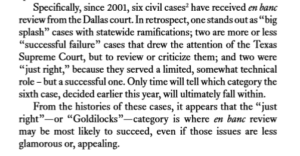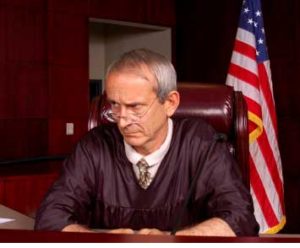 An published opinion about recoverable attorneys’ fees in a declaratory judgment action reviewed the controlling authorities, from the Texas Supreme Court and the Fifth Court, and reminded of these principles-
An published opinion about recoverable attorneys’ fees in a declaratory judgment action reviewed the controlling authorities, from the Texas Supreme Court and the Fifth Court, and reminded of these principles-
- “[Counsel]’s argument that her fees were ‘intertwined” was an insufficient basis for the trial court’s award. But neither should the trial court have disallowed all fees ‘simply because the services also further[ed] non-recoverable claims.'”
- “[Counsel] offered some evidence of her recoverable fees through her attorneys’ testimony and supporting documentation . . . . ‘Unsegregated attorney’s fees for the entire case are some evidence of what the segregated amount should be.'”
- Remand is an appropriate appeal remedy “for reconsideration with sufficiently detailed information for a meaningful review of the fees sought.”
- There is dispute among the Texas courts of appeal as to when a timely objection about segregation must be made. Footnote 4 of the opinion summarizes the authority on this point.
Anderton v. Green, No. 05-17-00024-CV (July 23, 2018).












